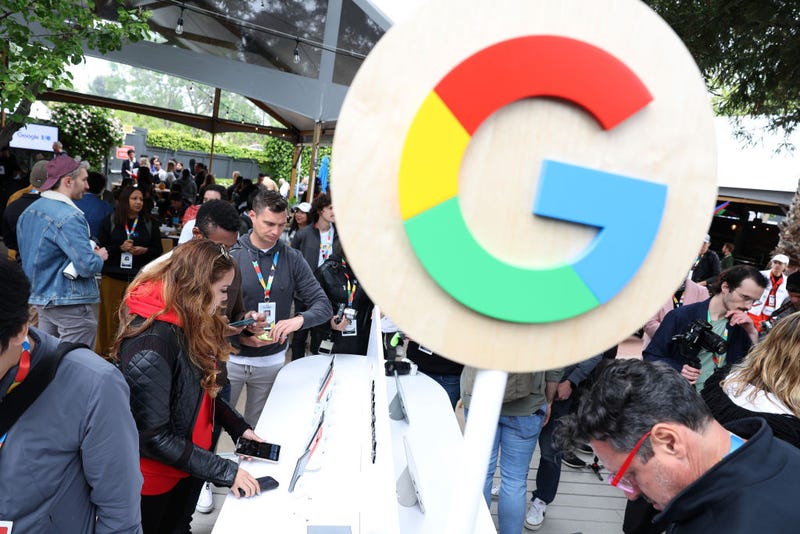
Tuesday marked the start of the antitrust lawsuit trial against tech giant Google, focused on its ubiquity as a search engine.
This case “could have far-reaching implications not just for Google, but for the tech giants whose products are ever-present in daily life and the consumers who use them,” said The New York Times.
What is the case about?
The U.S. Department of Justice announced the suit in October 2020. With opening arguments now kicked off, the case is expected to last around 10 weeks, according to the outlet.
First, the DOJ will present its case over three weeks. In its 2020 announcement, the DOJ claimed that Google unlawfully maintained monopolies “through anticompetitive and exclusionary practices in the search and search advertising markets.”
It also said that Google, “one of the wealthiest companies on the planet with a market value of $1 trillion,” accounts for 90% of all search queries in the U.S.
Google was able to amass 91% of the global search engine market, according to Similarweb data cited by The New York Times, in part through deals struck with phone-makers Apple and Samsung as well as with browser providers such as Mozilla.
“This feedback loop, this wheel, has been turning for more than 12 years,” said Justice Department lawyer Kenneth Dintzer. “And it always turns to Google’s advantage.”
On the other side, Google lawyer John E. Schmidtlein “argued that Google’s default agreements with browser makers don’t lock up the market the way that the Justice Department says they do,” according to the Times. He said that companies like Apple and Mozilla promote other search engines and said that it is easy to switch search engines.
However, Judge Amit P. Mehta asked some important questions on this point, said NYT reporter Steve Lohr. When the judge asked how often switching actually occurs, Schmidtlein didn’t have numbers.
He “could only point to what happened when Mozilla briefly made Microsoft’s Bing the default on the Firefox browser, and ‘droves’ of users switched to Google. An advocate’s reply,” wrote Lohr. “But he said there were no good overall statistics. Really? In a digital world where every click is tracked?”
What might the impact be?
If Google loses the case, it might have to change its business practices or restructure.
According to Reuters, the DOJ and others who filed the suit “are not seeking a monetary penalty, but rather an injunction barring Google from continuing the alleged anticompetitive practices,” and the government has suggested breaking the company up. Per the outlet the DOJ, may also argue that Google should be prevented “from leveraging its alleged search monopoly to making exclusive deals in newly-emerging markets, including artificial intelligence.”
Google’s lawyer said the plaintiffs hope “that forcing people to use inferior products in the short run will somehow be good for competition in the long run.”
There has been a similar case in the past – when the Justice Department accused Microsoft of illegally bundling its Internet Explorer browser with its Windows software to crush competition, per the NYT. That case ended in 2001 with a settlement.
If Google wins the suit, it could “raise questions about the regulatory powers once used to break apart corporate behemoths like Standard Oil and AT&T,” said The New York Times.
“By restricting competition in search, Google’s conduct has harmed consumers by reducing the quality of search (including on dimensions such as privacy, data protection, and use of consumer data), lessening choice in search, and impeding innovation,” said the DOJ. “By suppressing competition in advertising, Google has the power to charge advertisers more than it could in a competitive market and to reduce the quality of the services it provides them. Through filing the lawsuit, the Department seeks to stop Google’s anticompetitive conduct and restore competition for American consumers, advertisers, and all companies now reliant on the internet economy.”
What’s next?
Following the DOJ’s presentations, lawyers for states and authorities who also joined the suit against Google will present for two weeks. Then, Google is scheduled to begin its presentation in late October. Mehta will decide the case, and his ruling may not come until next year.
This January, the Justice Department announced another civil antitrust suit against Google for monopolizing multiple digital advertising technology products in violation of Sections 1 and 2 of the Sherman Act.
“To redress Google’s anticompetitive conduct, the Department seeks both equitable relief on behalf of the American public as well as treble damages for losses sustained by federal government agencies that overpaid for web display advertising,” said the DOJ’s January announcement. “This enforcement action marks the first monopolization case in approximately half a century in which the Department has sought damages for a civil antitrust violation.”
